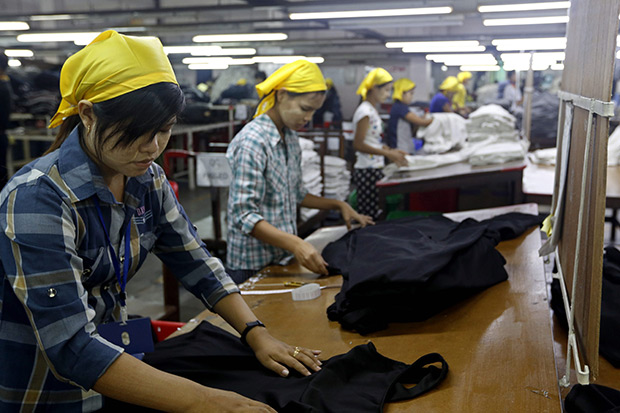
YANGON -- Myanmar’s parliament is likely to meet before the end of the year to approve legislation that would scale back a number of foreign-investment incentives the government now deems excessive, President Thein Sein’s top economic adviser said.
Parliament, which is in recess as lawmakers campaign for Nov 8 elections, will probably reconvene by early December, Aung Tun Thet said in an interview in Singapore Thursday. On the agenda will be a foreign investment act that will remove tax relief on some imported automobiles and require the amount of duty-free raw materials brought in to be vetted by a non-governmental organisation, Aung Tun Thet said.
"In our desire to attract investment, we thought after reflection that some of these incentives we don't need," said Aung Tun Thet. "We want to make sure these incentives are not taken advantage of, because the intention is to have responsible investors coming into Myanmar rather than irresponsible investors."
The Southeast Asian nation's last ballot in 2010 ended half a century of military rule and led countries including the US to ease sanctions, attracting a wave of money to one of Southeast Asia's poorer economies. Direct foreign investment rose tenfold to US$4.1 billion between 2009 and 2014, according to Chatham House.
Investment security
"Excessive tax concessions probably do more harm to Myanmar's fiscal situation than the good they may do with respect to marginal FDI," said Sean Turnell, an associate economics professor at Macquarie University in Sydney who wrote Fiery Dragons: Banks, Moneylenders and Microfinance in Burma.
What foreign investors in the nation "really need is a vibrant emerging market with security for their investment," said Mr Turnell. "An environment in which their property rights are secure, and they can make plans confident that they will not confront capricious and arbitrary policy making that will undermine their investment."
Election process
The main opposition National League for Democracy of Aung San Suu Kyi is expected to make significant gains in its first nationwide election in 25 years. The party won polls in 1990, but was barred from taking power by the junta. It boycotted the 2010 vote and only re-entered the political system in later by- elections.
Myanmar attracted a record $8 billion of investment in 2014 and may lure $10 billion to $12 billion annually by 2020, said Aung Tun Thet.
"Knowing the market that we have, knowing the regional connectivity, any foreign investor if you want to go into the India, China market, the gateway is Myanmar," said Aung Tun Thet. "The country is ripe for investment. There is scope for responsible investment in services, in manufacturing, in agriculture."